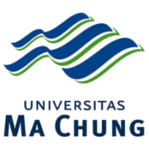PEMBENTUKAN KELAS KATA VERBA PADA TEKS EKSPOSISI DALAM BUKU BUDI WALUYO: BAHASA DAN SASTRA INDONESIA KELAS VIII SMP DAN MTS
Abstract
This study aims to determine the formation of verbs in the exposition text in the book Budi Waluyo Bahasa dan Sastra Indonesia Kelas VIII SMP dan MTS. This research was conducted with qualitative descriptive research. The data used in this study are verbs and the source of the data is in the book Budi Waluyo: Indonesian Language and Literature Class VIII SMP and MTS. The technique used in collecting data in this research is the analysis technique on the exposition text which contains a verb. The results of data analysis are presented using ordinary words. The forms found from the data source include the original verb and the derived verb. Derived verbs formed by affixation and verbs formed by reduplication. Affixes forming verbs include, meN-, meN-kan, meN-i, di-, ter- and ber-an. In addition, there are verbs related to nouns, namely active and passive verbs and verbs related to arguments, namely copulative verbs and equative verbs.
References
Asbarin, Sari, D. A., & Kumillaela. (2018). Kajian Morfologi dan Pengaruhnya terhadap Perubahan Makna (Analisis Buku Al-Arabiyah Baina Yadaika). Seminar Nasional Bahasa Arab Mahasiswa, 2, 344 – 358.
Kusniwati. (2019). Verba dan Adverbia. Semarang: Mutiara Aksara.
Rosmaya, E. (2018). Pembelajaran menulis teks eksposisi dengan menggunakan pendekatan kooperatif tipe investigasi kelompok di SMP. DEIKSIS: Jurnal Pendidikan Bahasa dan Sastra Indonesia, 5(1), 111-127.
Sofyan, A. (2012). Perilaku dan makna verba dalam bahasa Madura. Humaniora, 24(3), 333-344.
Waluyo, B. (2018). Bahasa dan Sastra Indonesia Kelas VIII SMP dan MTS. Solo: PT Tiga Serangkai Pustaka Mandiri.
Widiyawati, W., & Nusarini, N. (2019). Pronomina Demostratif Bahasa Jawa dalam Majalah Djaka Lodang. Caraka: Jurnal Ilmu Kebahasaan, Kesastraan, dan Pembelajarannya, 5(2), 95-105.

This work is licensed under a Creative Commons Attribution-ShareAlike 4.0 International License.
Open Access Policy
This is an open access journal which means that all content is freely available without charge to the users or their institution. Users are allowed to read, download, copy, distribute, print, search, or link to the full texts of the articles, or use them for any other lawful purpose, without asking prior permission from the publisher or the author. This is in accordance with the BOAI definition of open access.
![]() This work is licensed under a Creative Commons Attribution-ShareAlike 4.0 International License.
This work is licensed under a Creative Commons Attribution-ShareAlike 4.0 International License.

















